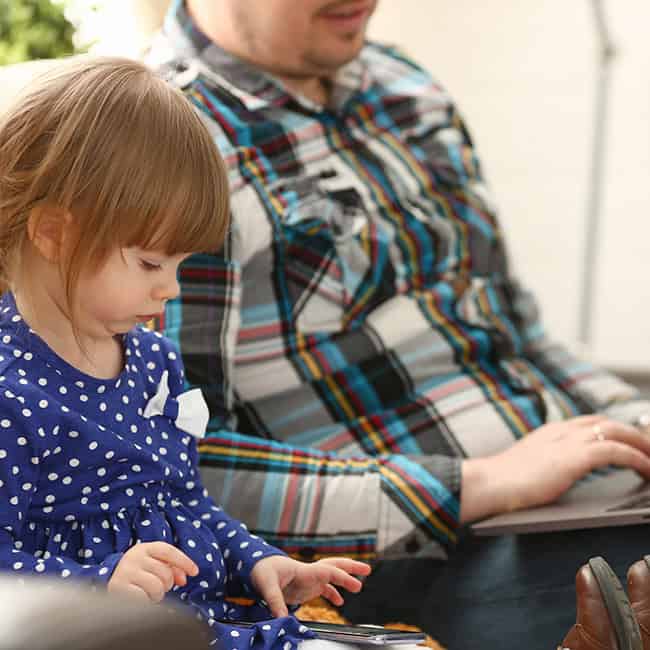My son loves money. Well, he loves coins. He’s three years old. He loves coins for the same reason Mr. Magoo does in Mr. Magoo’s Christmas Carol: because coins make such a lovely sound when they jingle. He likes to hold them and shake them. Right now I’m mainly using the jingly coins to teach him some basics. To wit:
Me: “This is a penny. Do you remember who’s on the penny?”
Him: “Lincoln”
Me: “Do you know his first name?”
Him: “Yeah. Memorial”
He’ll get there.
One thing that I hope to give him other than a firm grasp of U.S. history is a healthy relationship with money, especially how to save it for college, something we continually stress here at MEFA. On a recent trip to my office, my supervisor gave him a gift of three piggy banks. One was marked Save, one was marked Spend, and one was marked Share. Right now, these three activities are secondary to shaking the banks up and down like maracas. But one night, after a bedtime story, I found myself looking at the three silos on his bookshelf and wondering how I would explain these three different uses for his coins.
Starting with the easiest, I’d probably say something like this:
Spending: “Spending money is giving somebody money for something you want or need. So when we go to the toy store or the bakery to get some donuts, we have to give them money for those things that we want. And when you go to college – that’s the school you’ll attend when you’re bigger – we’ll have to spend money for you to learn. We should always spend money first on things that we need. Because if we don’t care of the things we need, the things that we want aren’t going to make us very happy.”
No problem, I thought.
Saving: “Saving is what happens when instead of giving someone else money for something, you give it to yourself. That might sound funny, but the idea is to give yourself enough money over time so that you don’t have to worry about not having enough money. There are also some things that cost a lot of money, like cars and houses, and you’ll need to have some money saved to buy those things. We especially want to save money for college – it’s a lot of money but if we start saving now, we’ll be able to send you there so you can learn a lot of new things. Saving money is a really good habit to learn. You don’t want to be caught in an emergency without any money when you need it.”
I hope that takes. We’ll see I thought.
Sharing: Hm. At first I didn’t think I had a lot of experience with people “sharing” money. But then I thought of my son’s aunt, who gives to his U.Fund 529 college savings plan. I remembered when we had a newborn and learned that as everyone says, “nobody does this on their own.” I realized that this concept doesn’t stop when your child is no longer a baby. It’s true throughout life, and my son’s aunt helping us save for college over the course of several years will really help make college a reality for my son.
“You know how it makes you happy when your cousins or your friends share their toys with you? Or how you feel when we all sit down and share dinner together? It feels good to share things sometimes. When people share what they can to help other people who need it, it makes everyone happy and everyone is better off. Your aunt shares her money so you can go to college one day – and that will make our whole family happy.
Yeah. Problem of innate human greed? Solved.
I’ll continue to teach these lessons to my son as he grows up. And continue to stress how important it is for us to save as a family for his college education. As he gets older, he’ll understand better how big an impact those saved coins will make on helping his college dreams become a reality. Until then, I’ll just have to keep explaining these concepts as best I can (and try to convince him to keep those coins in the piggy banks and out of his mouth!)
Search Site
Suggestions
Teaching my Preschooler How to Spend, Save, and Share
My son loves money. Well, he loves coins. He’s three years old. He loves coins for the same reason Mr. Magoo does in Mr. Magoo’s Christmas Carol: because coins make such a lovely sound when they jingle.
4-min
Teaching my Preschooler How to Spend, Save, and Share
My son loves money. Well, he loves coins. He’s three years old. He loves coins for the same reason Mr. Magoo does in Mr. Magoo’s Christmas Carol: because coins make such a lovely sound when they jingle.
4-min













